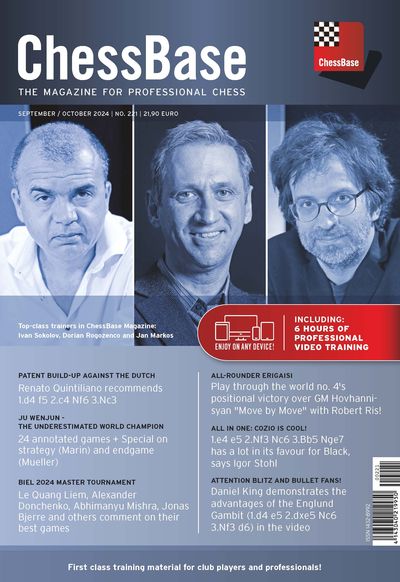Finding the right opening against 1.d4 has always been a difficult task. Keeping the balance between a solid position and having decent winning chances is very difficult. If you have experienced this problem, have you ever tried the Leningrad Variation of the Dutch Defense? When you play 1…f5, your opponent understands that you are not afraid and are out to win the game. Some White players like this, since they will also get more winning chances, but your choice might also unsettle many others.
For a long time, my trainers used to tell me that the Dutch Defense was quite dubious, and that there were many good ways to meet it and get an advantage with White. In fact the Dutch had a bad reputation in general, so they succeeded in convincing me for a while. But around 2013, some very strong players started to use it regularly; some of Kamsky’s games were very impressive and even the World Champion, Magnus Carlsen, started to employ the opening occasionally. Most of the time when the Dutch appeared in top level games, Black’s intention was to follow with an early …g6, leading to the Leningrad Variation, probably the sharpest version of the opening! Now many strong grandmasters employ the Leningrad Variation from time to time.
After seeing these games which seemed to show that White was unable to find an edge in the main lines, I decided to work closely on the variation. First of all I got two of the most recent books on the Leningrad, by Malaniuk and Moskalenko, and even if I wasn’t fond of every line, they were really inspiring. In 2015 I played my first games with the Leningrad. I even acquired a special feeling for this opening, because my first game with it was a win against GM Zakhartsov which was crucial in scoring my final GM norm in February 2015 at the Pfalz Open.
Since then I have included the Leningrad in my repertoire, even if only as my second or third choice main weapon, the reason being that I like to vary a lot, and I also like more positional openings.
After writing my first book almost two years ago on the Reti, I was kindly offered the opportunity by my editor to write another one on a subject of my own choosing. Obviously it was illogical to offer another repertoire for White, so the choice of the Leningrad for Black was obvious. The opening was a great source of interest to me, and I really wondered if I could devote a whole book to it. Also, I took a bet with my editor, Daniël Vanheirzeele, who didn’t believe in the Dutch at all, that I would make him like the book so much that he would play the Leningrad from the Black side. Time will tell if I have succeeded!
Throughout the book I have tried not only to look for variations where there is always life and winning chances for Black, but also to offer decent continuations, not just say that ‘Black has counterplay’, when he might clearly be worse, which is the case in some books.
The work presented here is designed for every player willing to improve his or her general understanding of the Dutch Defense, especially of the Leningrad Variation, with both colors. It provides a full repertoire for Black not only against 1.d4, but also against 1.c4 and 1.Nf3. I believe that the material offered here can help players from club level to GM level, and I hope you will enjoy reading it as much I did writing it!
Adrien Demuth
Arpaillargues, June 2019
 Excerpt
Excerpt


